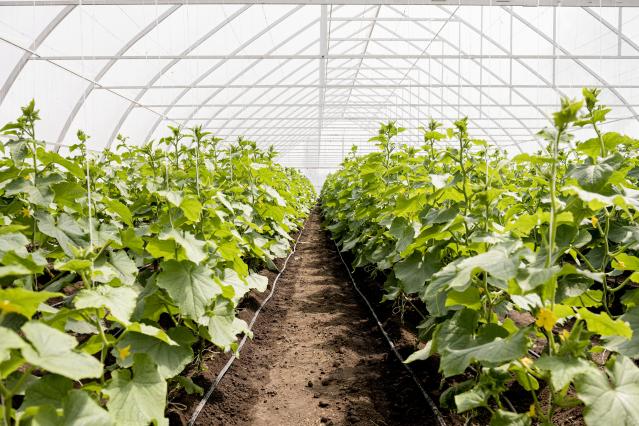
Do you have a question about this application? Ask our specialists
Contact us
Features & Benefits
Features & Benefits
Features
- Immediate action (in the first month after application).
- Easy and fast spreading, granular products (can be spread perfectly over a width of 24-36 m with any model of rotary or screw spreader).
- Soil treatment products with the highest neutralization value (NV~ from 55 to 95 or on the CaCO3 scale from 100 to 185).
- Easy to handle and work with different sizes and feature packages (bulk, big bags and small bags).
- Reduced dose/ha (professionally calculated).
- Increases the productivity of the soil on which it is used.
- With adequate calcium support fewer chemical treatments is needed.
Benefit
- Calcium promotes eco-friendly farming practices.
- Calcium is a fundamental component of plant cell walls.
- Protecting plants and optimizing orchard yields.
- Boosting the effect of fertilizers.
- Prevention of diseases and nutrient deficiencies.
- Reduces the incidence of blossom end rot.
- Reduces the occurrence of tip burn in leafy greens (e.g.: lettuce, cabbage).
- Contributes to improved fruit texture, taste.
- Improves shelf life, making fruits more appealing to consumers.
- Reduces post-harvest losses.
Dedicated solutions for your specific needs

Professional Soil service
Soil Amendment
Plant Nutrition
Garden & Orchards
Animal Nutrition
Animal Welfare
Fishponds
Farm Buildings
Sugar Production & Food Applications
The Significance of Calcium:
Calcium is a nutrient that holds particular importance in orchards and gardens due to its multifaceted role:
- Fruit Quality: In orchards, calcium is essential for the development of high-quality fruits. Adequate calcium levels contribute to better fruit texture, taste, and shelf life, reducing the occurrence of disorders like bitter pit in apples.
- Soil Structure: Calcium helps maintain soil structure and prevents compaction, ensuring healthy root development and water infiltration. This is crucial for the establishment of strong, productive plants in gardens and orchards.
- Disease Resistance: Calcium acts as a natural disease suppressor, reducing the risk of fungal and bacterial infections that can affect both fruit trees and garden plants.
- Nutrient Uptake: By improving the cation exchange capacity of soils, calcium enhances the availability and uptake of other essential nutrients like potassium, magnesium, and iron.
Calcium Deficiency in Orchards and Gardens:
Recognizing the signs of calcium deficiency is essential for addressing nutrient imbalances and preventing issues. Common signs of calcium deficiency include:
- Blossom end rot in tomatoes, peppers, and certain fruit trees.
- Tip burn in leafy greens, lettuce, and cabbage.
- Stunted growth, particularly in young plants.
- Increased susceptibility to diseases and pests.










